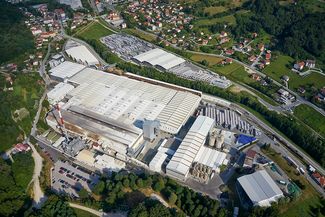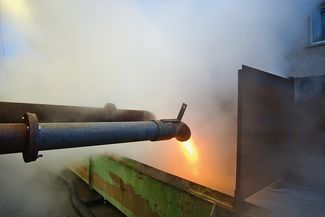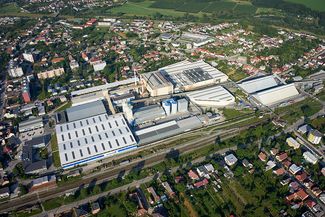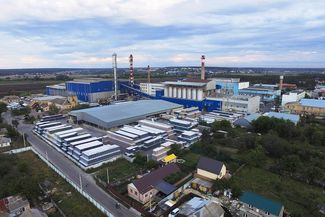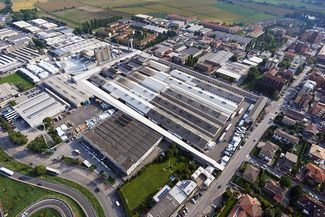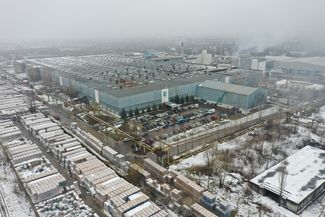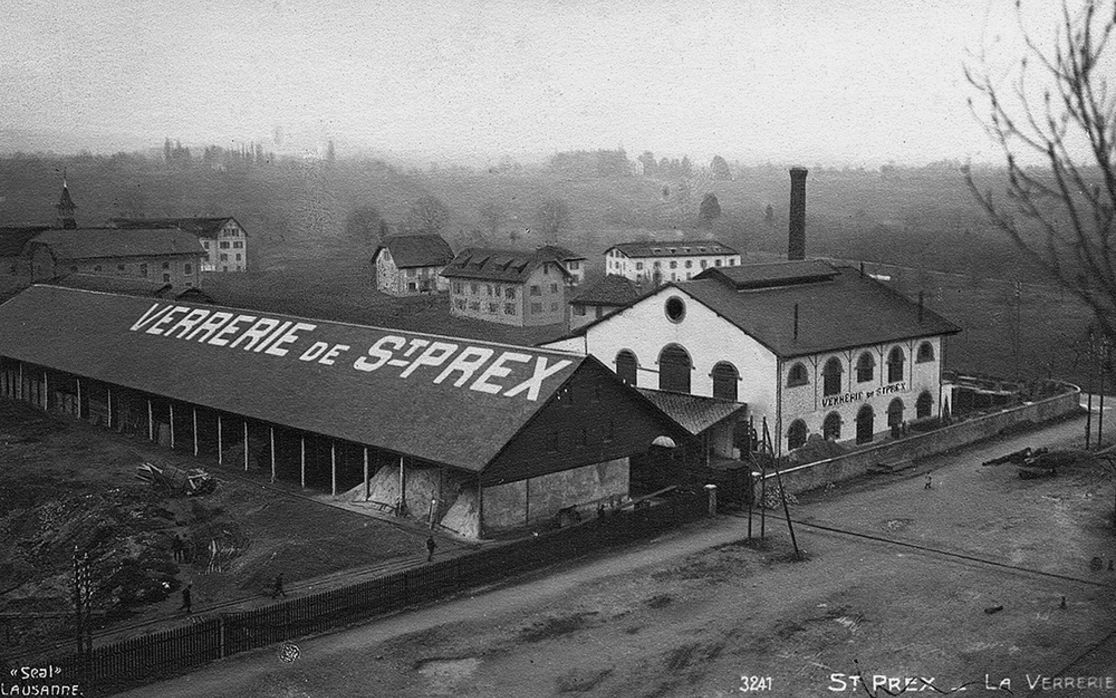
Our history
We have been producing glass packaging for more than 100 years. The company's growth has come from strategic acquisitions, takeovers and mergers, technological progress and the opening up of new markets. Our experience helps us to grow.
1911 - 1969
1911: Founding of the Verrerie S.A. St-Prex
Situated in the heart of the wine-growing region on the shores of Lake Geneva is the small town of St-Prex. The Verrerie S.A. St-Prex, established here in 1911 by Henri Cornaz, is the birthplace of the Vetropack Group. Today, the plant specialises in the production of glass packaging in the colours green, feuille-morte and cuvée, mostly making bottles for Swiss wine, spirits and beer producers.
1913/1917: Take over in Vevey and Bülach
In 1913 the Verrerie S.A. St-Prex takes over the glassworks above Vevey that was founded in 1776 and closes it down one year later. The company's workforce and production are transferred to St-Prex.
In 1917 the Verrerie S.A. St-Prex takes over a majority shareholding in Glashütte Bülach Ltd., which had been established in 1891.
1930: American glass-blowing facility
The first large-scale American glass-blowing facility goes on line. Because of the critical shortage of coal ten years later, the first electrically fired annealing oven becomes operational.
1948: Müller+Krempel Ltd.
Müller+Krempel Ltd., Zurich, a company specialising in trading in glass products for the pharmaceutical industry, flasks and laboratory equipment, acquires Glashütte Wauwil (est. 1933), after the sourcing of glass items from Thuringia and the former Czechoslovakia becomes difficult after 1945.
1959: Market leader
Upon acquiring the trading firm of Müller + Krempel Ltd., which in turn owns the Glashütte Wauwil, the Verrerie S.A. St-Prex becomes the market leader for glass packaging in Switzerland.
Of the other two glass foundries specialised in the production of packaging glass, the first, Siegwart in Küsnacht, is closed in 1972, while the second, Hergiswil, is restructured after its acquisition in 1975 by Roberto Niederer, becoming a traditional operation specialising in artisanal glass collections.
1966: Vetropack is founded
Vetropack Ltd., domiciled in Bülach, is founded to take over the central sales and administrative functions, as well as technical management, for the three production facilities, in St-Prex, Bülach and Wauwil, which up to that point had been independent in the marketplace. The Vetropack logo is introduced as a trademark at the same time.
1969: Vetropack Holding Ltd.
With the establishment of Vetropack Holding Ltd., the three legally independent glass foundries, plus Müller + Krempel, are united under a single roof.
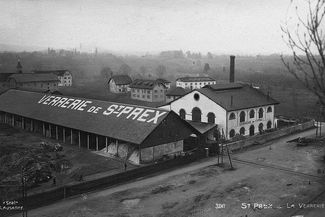
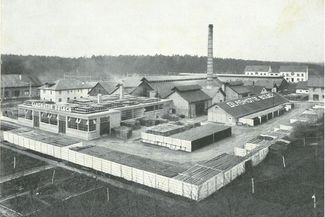
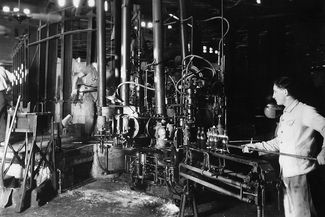
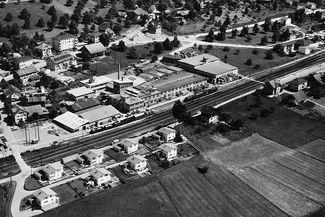
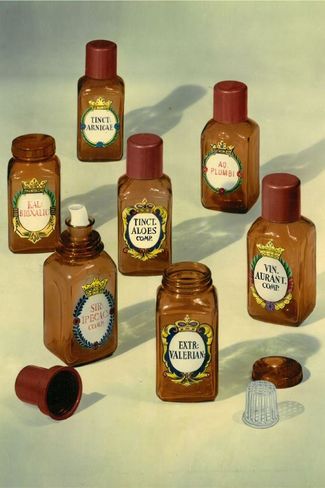
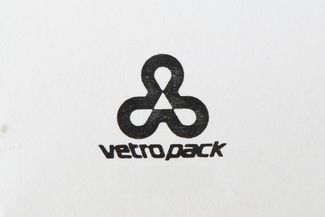
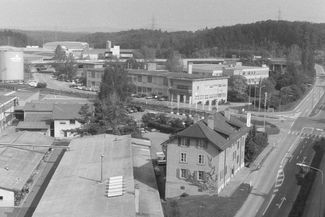
1974 - 1995
1974: Vetro Recycling Ltd.
Non-returnable packaging is becoming more and more of commonplace in the market. In order to recycle the used glass in a rational way in its own glass foundries, Vetropack organises a wide-ranging collection system for used glass in Switzerland, establishing the company Vetro-Recycling Ltd. for this purpose. In 2009, Vetro-Recycling Ltd. is merged with Vetropack Ltd., operating as an independent division.
1981: Acquisitions and diversification
As a result of the saturation on the domestic market for glass packaging, Vetropack diversifies into plastic packaging, acquiring the company Wirth-Plast Ltd. in 1981 and Afex Folien Ltd. in 1985. In 1986, production of PET bottles gets under way and, with the acquisition of Femit in 1987, the production of plastic packaging for pharmaceutical and cosmetics applications. In 1993 the plastic film business is sold off. In 1996, Vetropack leaves the plastic container business, to re-focus on its geographic expansion.
1986: Founding of Vetropack Austria GmbH
The start of Vetropack's geographic expansion is marked by the acquisition of Glaswerk Pöchlarn in Lower Austria and the founding of Vetropack Austria GmbH. The Pöchlarn plant, located near the Wachau region, has two melting furnaces, giving the facility a production capacity of 470 tonnes per day of packaging glass.
1991: Vetropack Moravia Glass, a.s.
The glassworks located in the Southern Moravian town of Kyjov is acquired and, as Vetropack Moravia Glass, a.s., is converted into a modern glass plant for the Central European economic area. Today, the Czech plant has two melting furnaces and a production capacity of over 670 tonnes of packaging glass per day.
1993: Acquisition of Lutzky Glas
Vetropack acquires the firm Lutzky Glas in the Upper Austrian town of Kremsmünster and subsequently integrates it as a branch operation of Vetropack Austria GmbH. The plant has three melting furnaces and a total production capacity of 670 tonnes per day.
1993: Production of PET bottles
Owing to the expansion of the Bülach melting furnace in 1991, added capacity in Austria and the increased use of substitutes for glass on the domestic mineral water and soft drink market, the production in Wauwil of packaging glass and glass for the pharmaceutical industry is halted. At the same time, however, the site of the former glassworks becomes a facility for the production of PET bottles. The trading company Müller + Krempel Ltd. now supplies glass packaging to the pharmaceutical industry.
1995: Management holding company
As part of the process of adapting its legal structure to meet the needs of the Group's expanded range of activities, Vetropack Holding Ltd. changes its function to that of a management holding company. Vetropack Ltd., which was previously responsible for Group Management activities, becomes a Swiss operating company, with the Verrerie S.A., St-Prex and Glashütte Bülach Ltd. merged into it.
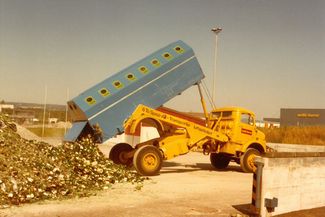
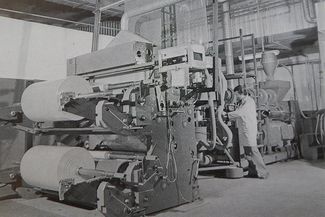
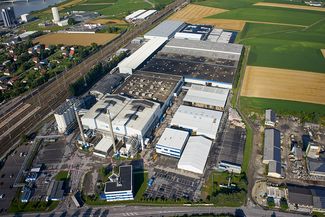
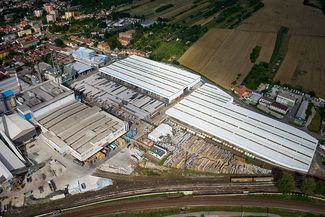
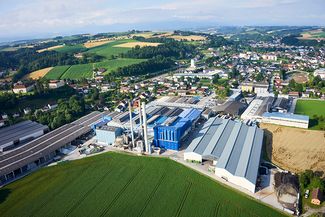
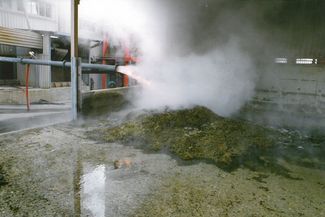
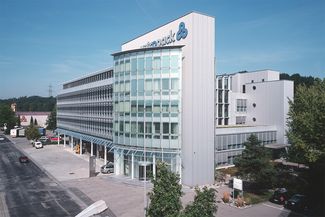
1996 - today
1996: Straža glass works
As part of the Group's expansion into Eastern Europe which began in 1991, in 1996 Vetropack acquires a majority shareholding of the Straža glass works in Hum na Sutli, Croatia. The plant undergoes a comprehensive technical modernisation programme, and receives its ISO 9001 certification, like all the other Vetropack production facilities. This glassworks meets the increasing demand from South-East Europe. The plant has three melting furnaces and a total production capacity of 790 tonnes per day.
2002: Closure of the Bülach production facilities
At the end of February 2002, glass production at the Bülach plant ceases after 111 years of operation. The reason for the closure of the Bülach production facilities is the collapse in prices brought about by the internationalisation of the markets, as well as the generally high costs in Switzerland. The Swiss market is now supplied by the St-Prex plant and the Vetropack production facilities in Austria.
2002: Slovakian glassworks Skloobal, a.s.
Vetropack continues its strategy for geographic expansion into Eastern Europe, acquiring the Slovakian glassworks Skloobal, a.s. Nemšová with effect from November 5, 2002. With this acquisition, Vetropack gains the position of market leader on the domestic market in Slovakia. At the same time, thanks to the expansion of its activities in an economic area with development potential, it is able to continue to strengthen its position in the European glass packaging industry.
2006: Gostomel Glass Factory
In February 2006, Vetropack acquires a majority shareholding in the Ukrainian glassworks, the Gostomel Glass Factory. With a melting capacity of 600 tonnes per day, the company, located in the Kiev region, is one of Ukraine's leading glass producers.
2015: Vetropack Italia S.r.l.
In July 2015, Vetropack takes over the glassworks in the Italian town of Trezzano sul Naviglio and incorporates it into its organisational structure as Vetropack Italia S.r.l. The plant has two furnaces and produces around 140,000 tonnes of glass packaging each year. The acquisition strengthens Vetropack’s long-term position on the major Italian market.
2020: Glass Container Company S.A. in Moldova
The new Vetropack company, Glass Container Company S.A. in Moldova, joined the Group in December 2020. It produces approximately 100,000 tonnes of glass packaging for the food and beverage industry annually, which is sold in both a growing domestic and export market. The glassworks is located in Chişinău and employs 504 people.
2023: New high-tech plant in Boffalora
In May 2023, after a construction period of over one and a half years, Vetropack began the process of heating up the two melting furnaces at its new Boffalora sopra Ticino plant in Italy. The furnaces were brought up to temperature and filled over the course of several days in preparation for the start of production. Following its official inauguration in October 2023, Vetropack’s new high-tech plant will be producing up to 70 percent more glass than the previous plant, while ensuring maximum flexibility and sustainability.
